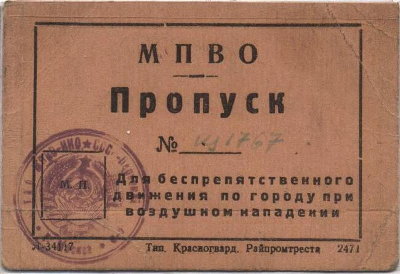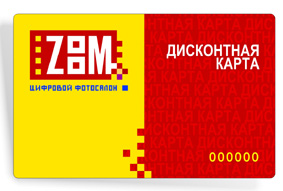Category: "Uncategorized"
Карта, карточка
The Russian word карта is translated as map. It can also be translated as card, whether it’s a collectible card (коллекционная карта), or a playing card (игральная карта). The dimunitive is карточка and is usually used to describe smaller sized cards, like a business card (визитная карточка) or a postcard (почтовая карточка).
Карта and карточка are very similar words but are rarely used interchangeably. For example, it would be incorrect to call a topographic map топографическая карточка, or refer to a postcard as a почтовая карта. Don't call a map карточка, and in most cases try not to refer to a small card as a карта, and you'll be fine.
The discount card is one of the exceptions where you can either say дисконтная карточка or дисконтная картa.
| Sg | Pl | |
| Nom | карта | карты |
| Acc | карту | карты |
| Gen | карты | карт |
| Pre | карте | картах |
| Dat | карте | картам |
| Ins | картoй | картами |
Here are some examples with the words карта and карточка:
| На следующей заправке нам надо купить карту Калифорнии, а то мы совсем заблудимся. | At the next gas station, we need to buy a map of California or we’ll be completely lost. |
| Сергей очень любил играть в карты и в конце концов опять проиграл всю свою зарплату за этот месяц. | Sergey loved to play cards very much and as a result has once again lost all his pay for the month. |
| Патрик Бейтман помешан на своих визитных карточках и постоянно ими хвастается. | Patrick Bateman is obsessed with his business cards and constantly shows them off. |
| Я потерял свой кошелёк, в котором лежали мои водительские права и все кредитные карточки. | I lost my wallet which contained my driving license and all the credit cards. |
Пропуск
The Russian word пропуск has more then one definition and can be a bit difficult to use and easy to confuse, especially if you are not following the conversation closely. It can be translated as “admission,” “pass” or “permit. Sometimes it means password but words like пароль and пассворд are used a lot more often for that. Пропуск can also refer to absences and no shows. And at last, it can be translated as a gap or a blank between something.
The word originally comes from the verb пропускать, which means to let pass, and to skip.
When пропуск means a pass or permit, it declines like this. (Note the irregular nominative/accusative plural).
| Sg | Pl | |
| Nom | пропуск | пропуска |
| Acc | ||
| Gen | пропуска | пропусков |
| Pre | пропуск | пропусках |
| Dat | пропуску | пропускам |
| Ins | пропуском | пропусками |
 Image of an old Soviet пропуск that allows for unrestricted travel around the city during an air raid. Taken from autogallery.org.ru.
Image of an old Soviet пропуск that allows for unrestricted travel around the city during an air raid. Taken from autogallery.org.ru.
Here are some examples for the use of various translations of the word пропуск:
| Пропуск людей, которые опоздали больше, чем на десять минут, запрещён. | The admission of people who are more than ten minuets late is not allowed. |
| Oн показал свой пропуск МВД и гаишник простил ему это нарушение. | He showed his Interior Ministry permit and the traffic cop forgave him the violation. |
| Пропуск уроков будет разрeшаться только по пятницам. | The skipping of lessons will only be allowed on Fridays. |
| Между словами виден небольшой пропуск, который мы так и не смогли объяснить. | There is a small gap between the words that we couldn’t explain after all. |
До свадьбы заживёт/ Собачья свадьба
This is a very popular Russian idiom used to calm someone who has been injured in some way. The literal translation is: before (до) wedding (свадьбы) it will heal (заживёт). You are pretty much telling a physically or emotionally wounded person to stop worrying and take it easy because the injury is not permanent and will eventually heal in time for the wedding. I heard the phrase a lot as a kid, mostly from parents and doctors. I still get it now and then when I do something stupid, like cut my hand while carelessly opening a can of peaches.
| Не надо плакать, твоя маленькая царапина до свадьбы заживёт. | There is no need to cry. Your little scratch will heal in time for the wedding. |
Now, cобачья свадьба “a dog's wedding” is an example of an idiom that has almost vanished and lost its meaning. When I heard it for the first time, uttered by an elderly gentleman in a fit of anger, I had no idea what it meant—just another ancient slang term on the brink of extinction. Собачья свадьба is used to describe a fling, a love affair, a one-night stand. You might bump into it in some old movie or novel… but in today’s world it will likely come from a crazed dog lover who actually wants to organize a real dog wedding.
| У Бориса опять собачья свадьба с новой женщиной. | Boris is having another affair with a new woman. |
Похожий
The word похожий means “similar to, resembling”:
| Masc | Neut | Fem | Pl | |
| Nom | похожий | похожее | похожая | похожие |
| Acc | * | похожую | * | |
| Gen | похожего | похожей | похожих | |
| Pre | похожем | |||
| Dat | похожему | похожим | ||
| Ins | похожим | похожими | ||
Here are some sample sentences:
| Учёные впервые обнаружили в другой системе планету, похожую на Землю.(source) | For the first time scientists have discovered a planet in another system that resembles Earth. |
| Нет у нас ничего похожего на демократию. (source) | We don't have anything resembling democracy. |
| Учёные провели исследование, доказавшее, что женщины выбирают себе в мужья похожих на них мужчин. (source) | Scientists have conducted research that proves that women choose men who look like them for husbands. |
Of course the adjective exists in the short form as well.
| Short forms | |
| Masc | похож |
| Fem | похожа |
| Neut | похоже |
| Pl | похожи |
The short forms of these words are incredibly common when commenting on resemblances between people. Note that the person you resemble shows up in accusative case after the preposition на.
| Мой брат похож на папу. | My brother looks like Dad. |
| — Не хочешь поласкать мою собаку? — Нет, я люблю только больших собак, а твоя собачка скорее всего похожа на паршивую крысу. — Какая же ты гадина! |
“Would you like to pet my dog?” “No, I only like big dogs. Your little dog looks like a nasty ol' rat more than anything else.” “You are such a creep!” |
| — На кого я похожа? На маму или на папу? — По-моему, ты больше всего похожа на того старика из соседней квартиры. — Что ты хочешь этим сказать? |
“Who do I look like more? Mom or Dad?” “I think you look more like that old guy from the apartment next door.” “What exactly are you trying to say?” |
| Когда она вошла в комнату, она была похожа на богиню из древней Греции. Я не мог не влюбиться. | When she walked into the room, she looked like a goddess from Ancient Greece. I couldn't help falling in love. |
If the antecedent of the word is это, then of course you use the neuter short form:
| Неужели ты ударила Витю по лицу? Это на тебя не похоже. | Did you really slap Victor in the face. That's not like you. |
The neuter short form also doubles as an adverb, and in this usage can have the same meaning as кажется ‘it seems’:
| Похоже, скоро будет дождь. | It seems like it'll rain soon. |
Вкусный
Вкусный means tasty or delicious.
| Masc | Neut | Fem | Pl | |
| Nom | вкусный | вкусное | вкусная | вкусные |
| Acc | * | вкусную | * | |
| Gen | вкусного | вкусной | вкусных | |
| Pre | вкусном | |||
| Dat | вкусному | вкусным | ||
| Ins | вкусным | вкусными | ||
As a standard hard adjective it works pretty well like you'd expect it to in sentences:
| Чай очень вкусный. | The tea is really tasty. |
| Вампиры выбрали вкусную жертву. (adapted from here) | The vampires chose a tasty victim. |
| Бабушка всегда готовила вкусные и полезные блюда. | Grandmother always made her food delicious and healthy. |
| Где в Интернете можно найти рецепты вкусных блюд? | Where on the Internet can you find recipes for tasty dishes? |
This adjective, like most other qualitative adjectives, also has short and comparative forms:
| Short forms | Comparative | |
| Masc | вкусeн | вкуснee |
| Fem | вкуснa | |
| Neut | вкуснo | |
| Pl | вкусны |
That by itself is not so interesting, but it gets interesting when we think about the neuter short form, which for most hard adjectives also doubles as an adverb. Russians use adverbs a lot more than English speakers, and they use them in ways that are quite unnatural to the American ear. An English speaker would almost never use the word 'tastily,' but you can find it all the time in Russian:
| Мама вкусно готовит. | Mom is a good cook. (Lit., Mom cooks tastily.) |
| В этом кафе кормят вкусно и дёшево. | This café has cheap and tasty food. (Lit., In this cafe they feed [you] tastily and cheaply.) |
| Мы вкусно пообедали и вернулись на работу. | We had a good lunch and went back to work. (Lit., We lunched tastily…) |
| — Как говядина? — Очень вкусно. |
“How's the beef?” “Very tasty.” |
That last example is of a type that used to drive me crazy. I wanted people to write вкусна in the feminine form, in other words with standard adjectival agreement. But in these types of contexts, the вкусно isn't referring directly to the beef. Instead it means something like “it is tasty to eat the beef”, in other words the ‘it’ isn't referring to the noun itself, but to the more abstract experience associated with the beef. Frankly, it still stresses me out that the Russians do that.
The subject of the wide use of adverbs in Russian is an interesting one. We'll try to include other examples in the near future.
<< 1 ... 27 28 29 ...30 ...31 32 33 ...34 ...35 36 37 ... 41 >>

 Image from
Image from